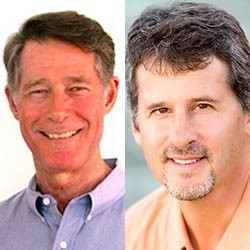
Search Results: pain
-
Trainer Tip: "Sometimes we are dissatisfied in our primary relationship, yet the thought of making a change is scary, so we stay in it. Sometimes we think we're afraid to learn the truth, so we don't ask direct questions."
-
This telecourse recording provides an experience with the language, skills and consciousness of NVC applied to mediating all types of conflict whether you are one of the people in conflict or you are supporting others in conflict.
-
Please join veteran CNVC Certified Trainer, Robert Gonzales, to explore how you can embody the consciousness of NVC and live every moment of every day in the fullness of compassion - for yourself and others.
-
Trainer Tip: Mary offers a perspective on how to know if our need for honesty is being met.
-
Trainer Tip: Taking time to mourn our regrets and unmet needs can lead to a deeper self-connection and feelings of peace.
-
Trainer Tip: Anger is a prominent call to gain our attention. Mary explains why it's worth heeding that call.
-
Listen to Roxy Manning explore the barriers to speaking authentically as powerful voices for change, and practice these needed conversations about the ongoing violence in the streets of America.
-
This gentle, healing telecourse recording will assist you in unearthing feelings and issues that have become tangled up with loss, enabling you to face whatever is blocking your grief.
-
Listen to this introductory 4-session Mediate Your Life telecourse recording to change your response to conflict and change your life.
-
It can be challenging to tell people that you don’t like a certain behaviour or action of theirs. Even with supportive intentions and compassionate language your message might be difficult for someone to receive. Of course, we are not responsible for others’ reactions, but we are responsible to care about each other, and there are effective ways to express ourselves with more care.
-
Clinical psychologist, Robert Gonzales, Ph.D., uses an open dialogue with a practitioner to explore effective, compassionate methods to handle a volatile counseling situation. This resource has been newly remastered to a larger, higher quality video.
-
Trainer Tip: Have you ever noticed that some of your behaviors ensure that your needs for peace and relief won’t be met? Take judgments for instance. The more we have, the less peaceful and happy we feel.
-
Trainer Tip: All people long for understanding. It is such an easy thing to give, yet rarely do we see its importance in creating peace of mind.
-
We invite you to dive into this voyage, where you and Robert will swim ever deeper into the Spiral of Life, coming face-to-face with your divine Life Force – that essential living energy that permeates all.
-
During this course, you'll deeply examine this process of blending and integrating your inner and outer selves. Not only will you explore various states of being, such as defensive / protective and being / essence, you'll delve into the primary levels of relationship: to others, to the world and to life, acquire tools for transforming resistance into unconditional acceptance, and much more.
-
Trainer Tip: We all see through our own filters. To disentangle what we hear from some is really saying, check using understanding requests at the level of detail you need. Course correct along the way. In a charged situation this can be critical to bringing in clarity, being heard and resolving differences amicably.
-
Trainer Tip: When someone is unresponsive it can be an opportunity to bring in more presence and connection through empathy. They may be worried that if they speak they'll say something they'll regret. Or they may want to know that their needs matters as much as yours. They may also need more space to clarify their thoughts.
-
Trainer Tip: Today, identify the facts, without adding your ideas about why people behave in certain ways. Then consider connecting with the person about what was going on with them. You will find that the more you observe life without judgment and evaluation, the more open you will be to hearing and connecting with other people.
-
Trainer Tip: When someone acts in baffling ways we can either wonder about what’s going on with the other person, create our own stories about it (blame, resent, make assumptions), or inform ourselves by asking. This is an opportunity to learn something new.
-
Trainer Tip: Be aware of opportunities today to choose empathizing over arguing with someone who is angry, and notice how it affects your ability to resolve the situation. Read on for more.





















